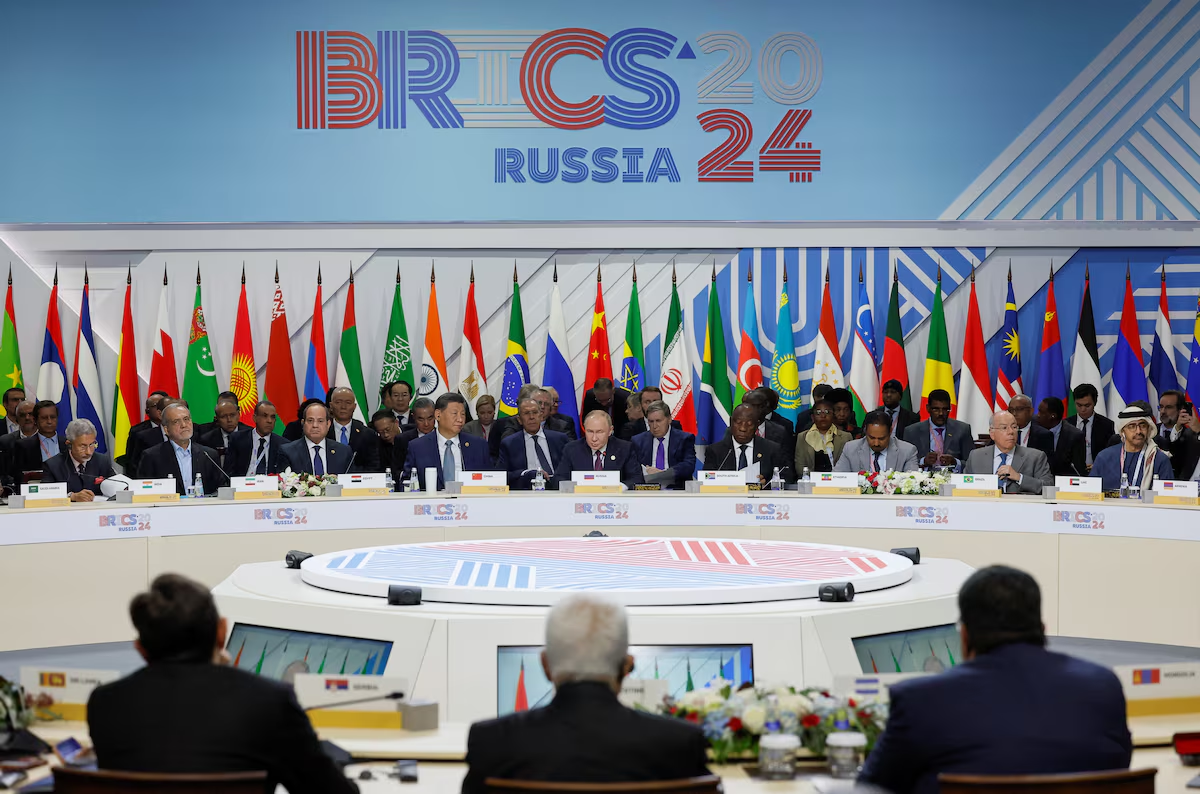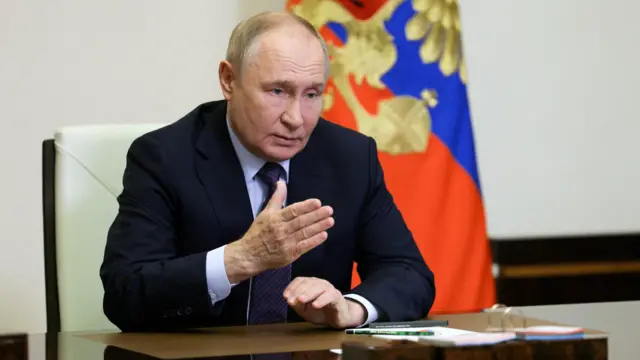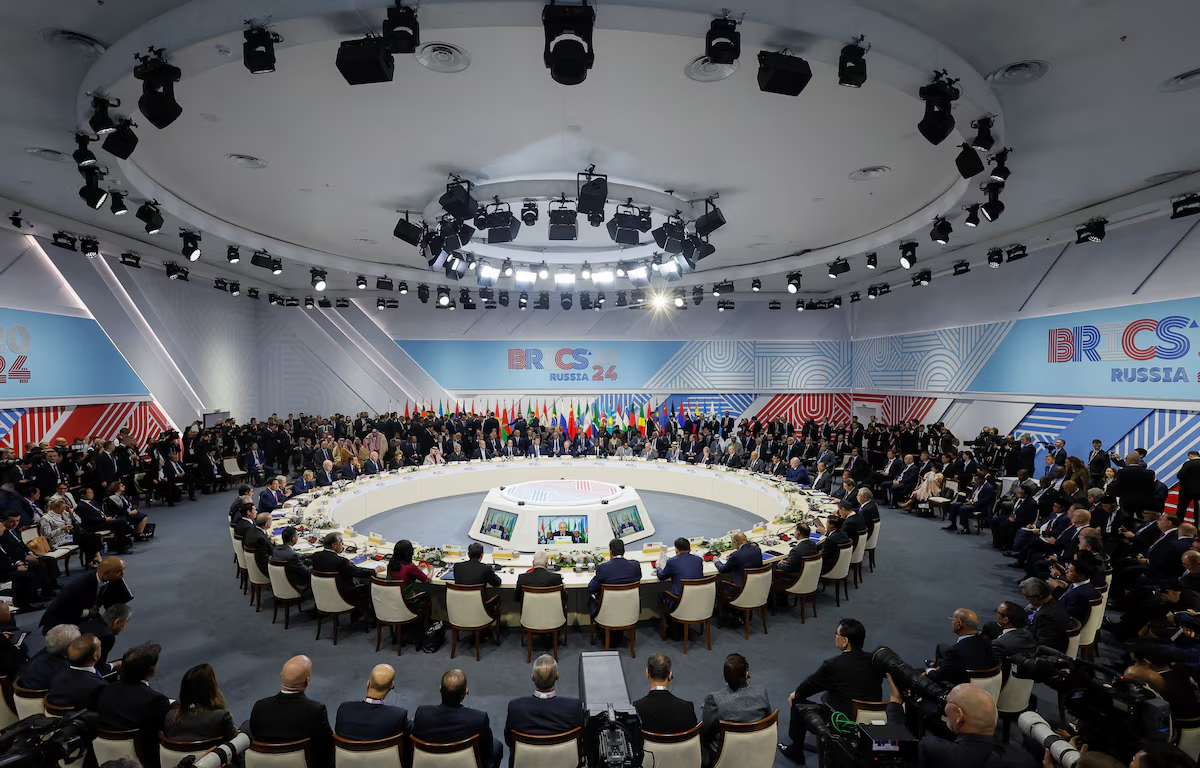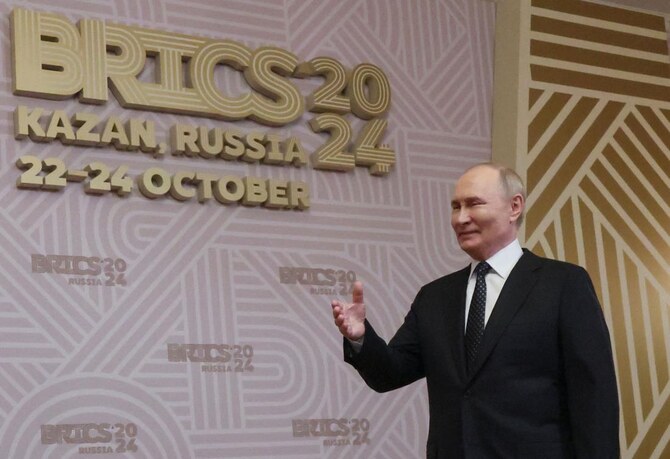Russian President Vladimir Putin warned on Thursday that the Middle East is dangerously close to the outbreak of a full-scale war, citing rising tensions between Israel and Iran. Speaking at a meeting of the BRICS+ group in Kazan, alongside Chinese President Xi Jinping, Putin emphasized the growing danger of the conflict, which began a year ago in Gaza, now spilling over into neighboring countries, particularly Lebanon.
“The situation has escalated significantly,” Putin said, “and what started as localized fighting in Gaza has extended into Lebanon. Other nations in the region have also been drawn in, and the confrontation between Israel and Iran is intensifying.” His comments reflect the growing fears among global leaders that the conflict is no longer confined to the Gaza Strip but could soon engulf much of the Middle East. Putin likened the situation to a “chain reaction,” where various regional dynamics are feeding into each other, increasing the risk of widespread war.

Putin’s remarks come at a time when Israel is facing mounting threats from multiple fronts. In the north, Hezbollah, the powerful Iran-backed militant group based in Lebanon, has intensified its rocket attacks on Israel. Meanwhile, in Gaza, the Israeli military continues its offensive against Hamas, following the militant group’s devastating attack on Israel a year ago, which left over 1,200 Israelis dead. In retaliation, Israel has launched a sustained military campaign in Gaza, resulting in significant loss of life and widespread destruction.
The escalation between Israel and Iran has been a particular point of concern for the international community. Iran, a staunch supporter of both Hezbollah and Hamas, has increased its rhetoric against Israel, with Iranian officials frequently threatening military action if Israel continues its bombardment of Gaza. Tehran has also been accused of supplying Hezbollah with sophisticated weaponry, including precision-guided missiles that could target major Israeli cities.
The tensions between Israel and Iran have been simmering for years, primarily over Iran’s nuclear program and its support for militant groups across the region. However, the current Gaza conflict has brought these tensions to a boiling point. Israel, on the other hand, has carried out numerous airstrikes in Syria to prevent Iranian military entrenchment near its borders, further stoking animosity between the two countries.

Putin’s warning about the potential for a broader war comes amid growing diplomatic efforts to contain the violence. The United States and other Western countries have called for de-escalation and have been involved in shuttle diplomacy to try to prevent the conflict from spiraling further out of control. U.S. Secretary of State Antony Blinken has been meeting with leaders in the region, including Israeli and Palestinian officials, in an attempt to broker a ceasefire. However, these efforts have so far yielded little progress, with both sides remaining deeply entrenched in their positions.
The situation is further complicated by the involvement of other regional players. Turkey has voiced strong opposition to Israel’s actions in Gaza, calling for international intervention to protect Palestinian civilians. At the same time, Saudi Arabia, which had been moving towards normalizing relations with Israel before the latest outbreak of violence, has suspended talks and strongly condemned Israel’s military actions.
Russia, while not directly involved in the conflict, has significant influence in the Middle East. Putin’s alliance with Iran, as well as his good relations with Israel, place Moscow in a unique position to potentially mediate between the two sides. Russia has also been involved in the Syrian civil war, where it has coordinated with both Iranian forces and Israel to avoid direct military confrontations. Putin’s comments at the BRICS+ meeting suggest that Moscow is deeply concerned about the potential for the conflict to escalate into a regional war, which could destabilize not only the Middle East but also have ripple effects on global security.
As the situation continues to deteriorate, the international community is watching closely. The prospect of a full-scale war between Israel and Iran would have catastrophic consequences for the entire region. It could lead to massive casualties, further displacement of civilians, and the involvement of global powers in what could become a prolonged and bloody conflict.

The possibility of direct Iranian involvement in the fighting would also raise concerns about the security of oil supplies from the Persian Gulf, which could send global energy markets into turmoil. Additionally, the involvement of Hezbollah in the fighting could draw in Lebanon, which is already grappling with its own internal crises, including an economic collapse and political instability.
In conclusion, President Putin’s stark warning underscores the precariousness of the current situation in the Middle East. The conflict that began in Gaza has spread beyond its borders, and the risk of a broader regional war is becoming more tangible with each passing day. The intensifying confrontation between Israel and Iran, in particular, poses a serious threat to regional and global stability. As diplomatic efforts continue, the world waits anxiously to see if the situation can be de-escalated or if the region is indeed on the brink of a full-scale war.




